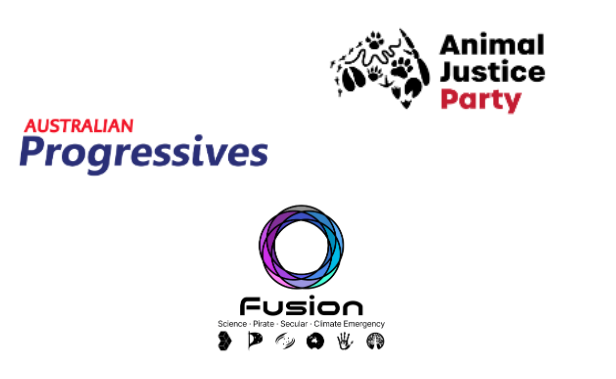|
(Noting that this article was first published at ClimateSafety.info on 11 March 2024 and is used here with the author's permission.)
The Tasmanian state election, scheduled for 23 March 2024, has become a focal point for climate action with the introduction of the Climate Rescue Accord. This initiative, endorsed so far by 12 candidates – seven community independent candidates along with five candidates from the Animal Justice Party, seven women and five men – aims to significantly shift the state’s approach towards a safe climate. The Climate Rescue Accord focuses on the so-called “3Rs” – Reduce, Remove and Reflect – and it proposes comprehensive strategies to mitigate climate change impacts. Its adoption by candidates indicates a growing prioritisation of climate issues in Tasmania’s political discourse. Impact on voter sentiment According to polls, support for independent candidates and minor parties has increased, reflecting a potential shift in voter sentiment. The increase in support for independents and minor parties suggests a desire for broader representation and possibly a shift away from traditional two-party politics. There is the real potential for some of these candidates to hold the balance of power in the next Tasmanian parliament. This movement could lead to transformative policies that align with global climate goals, marking a critical step for Tasmania in addressing environmental challenges. This election cycle has seen a focus on issues such as healthcare, the cost of living, and environmental concerns, reflecting the priorities of Tasmanian voters. Political landscape changes The election will be the first to be held with the House of Assembly restored to 35 seats, a significant change from the previous number of 25 seats. This change aims to provide broader representation. With the election set to increase the number of seats in the House of Assembly, the outcome could significantly alter the political landscape in Tasmania, potentially leading to more coalition governance and a greater influence of minor parties and independents in the legislative process. The Liberal party has been in a minority government situation in Tasmania since May 2023. The Accord’s goals and strategies The Climate Rescue Accord aims to initiate action to halt global warming, ensure survival, reduce suffering, and restore a safe climate for all living beings. Its objectives include holding global temperature rise to the minimum possible, ensuring temperatures do not exceed 2°C and ideally returning below 0.5°C. The Accord represents a big picture vision and strategy for survival and a safe climate, reaching out to the cross bench and minor political parties to support this vision. The Accord emphasises reducing greenhouse gas concentrations to pre-industrial levels, supported by credible scientific evidence. The Climate Rescue Accord also highlights the importance of policy development, encouraging individuals and political parties to get involved in policy working groups, share information about the Accord, and sign up for their newsletter to stay updated. In the context of the Tasmanian election, the signing of the Climate Rescue Accord by candidates indicates a growing influence of climate-focused politics in Australia, especially among independents and minor parties. This movement reflects a broader trend toward addressing climate change with comprehensive, science-based approaches and leveraging political support for significant environmental action. Tasmanian candidates in support of the Climate Rescue Accord Bass Tim Walker (Independent) “I enjoyed reading about the Climate Rescue Accord on the website. I fully support the 3Rs and the Accord, and if I am successful in becoming a Tasmanian State parliamentarian, will look forward to advancing and supporting the actions outlined through the decisions I make.” Jack Davenport (Independent) “I support the use of the 3Rs and the Climate Rescue Accord to help inform decisions, supported by the best available evidence, I will potentially make in the Tasmanian parliament in relation to action on the climate emergency.” George Razay (Independent) George has endorsed the 3Rs and the Climate Rescue Accord. At a local level he is particularly concerned about the effect of pollution on public health. Ivan Davies (Animal Justice Party) The Animal Justice Party has fully endorsed the 3Rs and the Climate Rescue Accord. Lyons Angela Offord (Independent) “I support the use of the 3Rs and the Climate Rescue Accord to underpin decisions I will potentially make in the Tasmanian parliament in relation to action on the climate emergency.” Anna Megan Gralton (Animal Justice Party) The Animal Justice Party has fully endorsed the 3Rs and the Climate Rescue Accord. Clark Sue Hickey (Independent) “I support the use of the 3Rs and the Climate Rescue Accord to underpin decisions I will potentially make in the Tasmanian parliament in relation to action on the climate emergency.” Casey Davies (Animal Justice Party) The Animal Justice Party has fully endorsed the 3Rs and the Climate Rescue Accord. Franklin Martine Delany (Independent) “In brief, I’m entirely comfortable with offering my support for the 3Rs and the Climate Rescue Accord. They’re very nicely aligned with my thoughts on, and hopes for, future climate action. I seriously believe the world has no need of humans. If we’re unable, or unprepared, to work out how to live an existence more in balance with the rest of the global ecosystem, then people will disappear. And, in truth, the rest of the planet would undoubtedly find life much easier without us! Neither the world, nor the Universe, has any real need for us. The choice is ours.” Clare Glade-Wright (Independent) “I generally support the underpinnings of the 3Rs. Every decision that comes to parliament I would assess on each of their merits.” Jehni Thomas-Wurth (Animal Justice Party) The Animal Justice Party has fully endorsed the 3Rs and the Climate Rescue Accord. Notes: The Animal Justice Party candidates have not endorsed the 3Rs as individual candidates. Their commitment is through their party policy, unlike independents whose endorsement is personal. The Animal Justice Party have made their position clear via party policy. The research and information about the candidates was conducted and compiled by Vote Climate One. Vote Climate One will soon start working on preliminary Traffic Light Voting assessment of the Federal independents for the next Federal election.
0 Comments
Animal Justice Party, The Australian Progressives and Fusion Party have acknowledged and committed to radical action required to avoid runaway global heating and further devastation. The required action includes zero emission across all sectors, sequestering excess carbon dioxide, plus immediate research and development into reflecting sunlight to actively cool the planet. The history of climate action in Australia is marked by weak targets and accounting tricks and ongoing approval of new fossil fuel projects. The major parties’ positions on climate change will lead to an unlivable earth. We hear endless talk of climate action and mitigation but within Australia, no MP or environmental-NGO advocates for a global vision and commensurate strategy to stop let alone reverse global heating. The Climate Rescue Accord has stepped into this leadership void. The Accord aims to bring other minor parties and independents on board, with several new parties set to sign on. The Accord is also reaching out to international stakeholders hoping to start a worldwide movement. While the Accord’s vision is to stop and reverse warming globally, the commensurate strategy is the 3Rs: Reduce (emissions to zero at emergency speed), Remove excess greenhouse gases, and Reflect sunlight to actively cool the planet until Reduce and Remove can achieve a safe climate on their own. To the 3rd R, Reflect, the Accord calls for urgent research and development to determine safe methods for making the earth more reflective. “The world has left it too long for net zero targets alone to avert the threat of runaway warming.” Explained Dr Adam Cardilini from the Accord’s Working Group. “At around 1.5C of warming we enter a world where runaway climate change becomes more and more likely. This would create a world that is unlivable for most people, animals, and ecosystems.” The idea of active cooling by reflecting sunlight is not new. There are calls for moratoriums of real world research into methods, such as use of aerosols, to increase Earth’s reflectivity. “There are many ways we can create an active cooling that don’t include the classic geoengineering options, such as use of aerosols in the stratosphere. Other options could include lightning roofs and roads or mirrors on the earth’s surface.” said Dr Cardalini. “However we don’t really know because the required research isn’t happening.” “We need to understand that we are already geoengineering between a half and one and a half degrees of cooling from aerosols created by burning fossil fuel. As we go to zero emissions, we need to offset this loss of cooling,” explained Bryony Edwards from the Working Group. The participating parties of the Accord have and are adopting policy that comprehensively reflects all 3Rs, including near-zero targets across all sectors, using the work of many groups that have been developing such plans, including Australia’s Beyond Zero Emissions. Mik Aidt, from the Accord Working Group, emphasised that active cooling by reflecting sunlight cannot happen without the other two Rs: Reduce and Remove. “The 3Rs are a complete package but active cooling alone is just a temporary bandaid. Ocean acidification, pollution, and greenhouse gas imbalances still need to be addressed via Reduce and Remove.” The Climate Rescue Accord began as climate policy conversation between executives and members from federally registered political parties. The Accord working group committed to the vision of stopping and reversing warming, bringing others on board including international stakeholders. Vote Climate One, a Climate Rescue Accord partner, has endorsed the 3Rs and will assess any candidates with regard to their embrace of the 3Rs through its traffic light voting guide. Rob Bakes from Vote Climate One said that, “The major parties have proven to be worse than useless on climate action. Minority government is the only way Australia can reorient itself to a future where we might just have a chance at survival.” “Unless there are parties that are willing to work together, as with the Climate Rescue Accord, we won’t get the change we need,” said Antoinette Pitt, representing the Australian Progressives. “On top of that we need the public to understand how preferential voting works - how to use their preferences.” Contact the Climate Rescue Accord working group: [email protected] |
Archives
June 2024
Categories |



 RSS Feed
RSS Feed
